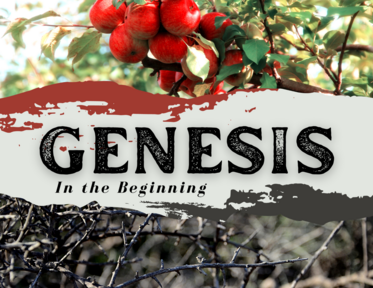Genesis 1:1-25

Notes
Transcript
Sermon Tone Analysis
A
D
F
J
S
Emotion
A
C
T
Language
O
C
E
A
E
Social
Background
Though the author never identifies himself, it is most widely accepted that Genesis was authored by Moses, along with the next 4 books which make up the Pentateuch, or the Torah that the Jews venerate as God’s Law to them. Just as Revelation was given to show us the future, Genesis was given to show us the past, the beginning, and to show us the God who created it all.
Gen. 1:1-5
The Bible tells us that there was a beginning. What we can see, experience, and trust to be true around us once did not exist, but now does.
The fact that something, rather than nothing, exists requires a cause.
The fact that something, rather than nothing, exists requires a cause.
Humans can observe that the known universe is in motion, and it is expanding. This points back to the beginning of the universe, from the point where it began to expand.
If the universe began to expand, there was a point where it was not. This is commonly called the Big Bang, where all known matter began to exist.
But if there was a Big Bang, that means something, or someone, caused the Big Bang. Time, space, and matter had to come from somewhere.
Something cannot come from nothing (ex nihilo).
Something cannot come from nothing (ex nihilo).
So did the laws of creation, such as mathematics, physics, chemistry, and biology, all which govern matter and how it interacts in and with creation.
The most reasonable explanation for the universe’s existence is that it was created by something that has the intelligence to creatively design what we observe.
It also must possess the power to create something from nothing.
Finally, it must be something that had no cause. Otherwise we would have need for another cause.
Infinite Regress
Infinite Regress
The God of the Bible possesses all of these attributes. He is omniscient, all-knowing; omnipotent, all-powerful, and; eternal, without beginning or end. In the beginning, God created the heavens and the earth (Rom. 1:18-21). He is the first, or necessary, cause for all other things to get started.
An interesting note: the word used for God in the Hebrew is Elohim. This is the plural masculine form of the word El, the generic word for a supreme being. In other contexts, it is translated “gods,” but not when describing God. This is an OT clue that points to the Trinity.
ELOHIM
ELOHIM
He gave shape to the formless, empty void, and created light in the darkness. The Holy Spirit was a part of creation as he hovered over the void. He began time by starting it on the first day.
Jesus also participated in creation: John 1:1-5.
Gen. 1:6-8
On the second day, God separated the heavens and the earth.
As seen previously as well, the word “waters” is used to describe the flowing, transitory void of space and water.
The “expanse” separating the two is the sky, or “heavens” as it has been called.
Gen. 1:9-13
On the third day, God created dry land, and caused vegetation to grow on the earth.
This is the first time that God sees that His creation is good, and he says it twice on this day.
This is the first of God’s creations that are living, though plants are not creatures as we would classify them.
Note that the vegetation was created before the sun. This will be important momentarily.
Gen. 1:14-19
On the fourth day, God created the sun and the moon and the stars in outer space. Note that day and night began on the first day, but these celestial bodies serve as signs for keeping time, and for giving light during the day and the night on the earth. He once again saw that it was good.
Gen. 1:20-23
On the fifth day, God created the first of His living creatures, that He designed to live in the water and in the air.
Gen. 1:24-25
On the beginning of the sixth day, God created the rest of His living creatures, these he designed to move upon the dry land of the earth.
Here is where we will stop for today, but there are some things of note to discuss:
Each day is a literal, 24-hour day. The sun and moon are made to help keep track of time (v. 14), but day and night began on the first day.
God is the designer of all that He created. He set into motion the things that we observe and take for granted. Physics tells us that nothing in creation can last forever in the state that it’s in, therefore, God must be outside of physics and everything else that He created.
Everything that we see created exists within a system. Time passes but the movement of the earth, sun, and moon due to gravity allow us to keep track of time. Vegetation requires water and sunlight to continue living, and living creatures require vegetation for sustenance and oxygen.
If any of these, or any other natural constants, were different than they are, life would not exist on earth.
God made His creation good. There was no disease, there was no death. Evolution will be discussed next week.
Next week, we will finish the creation account and see the making of man.
